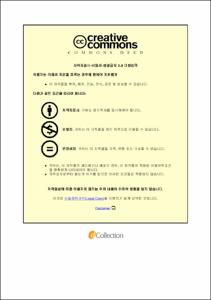消費者의 自我性向이 친환경心理 및 綠色消費者行動에 미치는 影響에 關한 硏究
= A study on the Effects of Consumer's Self-Construal on Environmental Psychology and Green Consumerism : Focusing on the Moderating Effects of Self-Esteem, Self-Congruity and Consumers' Knowledge
- Type
- Thesis
- Alternative Title
- 자아존중감, 자아일치성, 소비자의 지식 조절효과 중심으로
- Advisor
- 신민철
- Department
- 대학원 경영학과
- Issued Date
- 2011
- Publisher
- 한성대학교 대학원
- Files in This Item:
-
-
Download
 000000894394.pdf
기타 데이터 / 2.22 MB / Adobe PDF
000000894394.pdf
기타 데이터 / 2.22 MB / Adobe PDF
-
Items in Repository are protected by copyright, with all rights reserved, unless otherwise indicated.